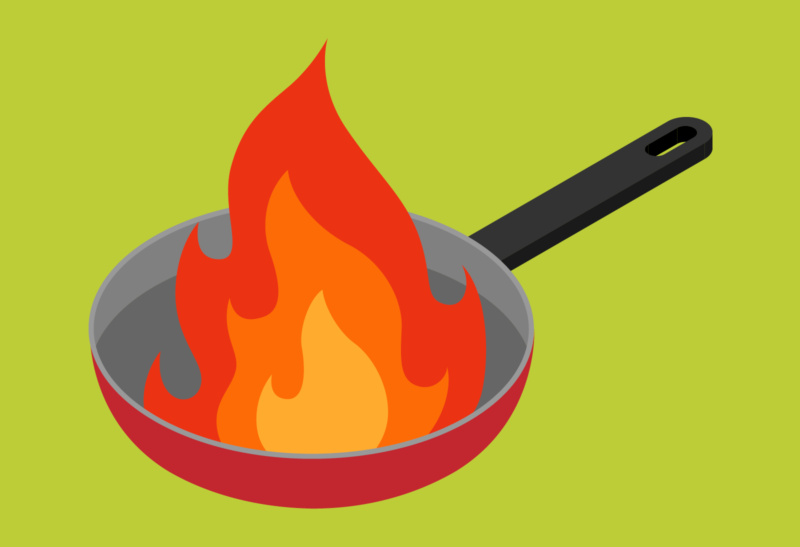The Burnt Chef Project is making waves in breaking the stigma around mental health in the hospitality industry, providing valuable tools and resources for both business and individuals.
Chef Craig, a Development Chef here at Bidfood UK, has recently become an ambassador for the project. We sat down with him to learn more about his new role, the conversation around mental health in hospitality, and what changes we can all make to support one another.
Can you tell us a bit about yourself and your journey in the hospitality industry?
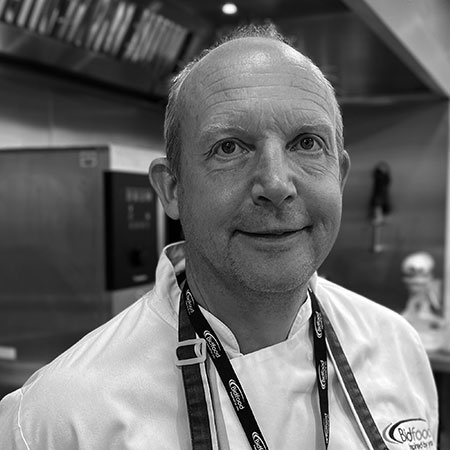
So, I left school, went to Solihull College and did my City and Guild training, which were your traditional chef qualifications, and then stayed on an extra year to do bakeries and pastries, so I qualified to be a baker and patissier.
Reason being, that, if I thought I wanted to be a head chef in a kitchen, I needed to know all the areas. I loved every single minute of college, and after I left I went to work in country hotels, trained by a world master chef, Iain McCormack, who was a member of the Culinary Olympics team!
I worked really hard throughout that time, but after around 3 years I totally and utterly wanted to change from hotels, so I moved into contract catering and then was fortunate enough to move into food development and eventually Bidfood!
What inspired you to become an ambassador for the Burnt Chef Project?
I had been looking at the Burnt Chef Project for quite a few years, and I think I was really lucky to have a couple of really good mentors in my career – people I could lean on, especially when you’ve had hard days, tough days, who can then tell you “this is normal”, or “this is what to do next”. I see a lot of places where, unless you’ve got a good mentor, it’s very easy to fall out of love with the industry and not understand what’s going on.
For example, if you work in an office, you could look forward to finishing on a Friday and you’ve got your weekend free to spend time with friends and family. When you work in hospitality, a lot of the people you work with, you might even share a house with or socialise with – so it’s quite intense. All of your life can become part of your job, which isn’t always healthy.
So, I wanted to be part of the Burnt Chef Project to try and inspire and give a bit of mentorship to other people, like I had experienced from the great people around me early on in my career. To give someone some help with where they’re going through or help them to look forward – for example, help them to work out what other sectors they might be interested in moving into. But also just how to get the best of people. We’ve all been through bad days, or bad weeks, we’ve all had bad bosses. Sometimes it’s not just you, it’s the workplace that’s wrong for you.
You know, for example, businesses can change their shift patterns to help – doing 4 days on, 3 days off to compensate for the longer days. We want time off, we want time with our family, we’ve got all the other things that are going on with our lives like everybody else has. I used to work somewhere where there were all sorts of support for the office staff, but nothing for the catering staff, almost like we were looked over and expected to get on with it. So, the Burnt Chef is really putting the good side over the industry – we’re not ignoring the hard bits but calling out the places that aren’t doing the right things for their staff.
Nowadays, there aren’t as many people going into hospitality, so we need to change the image! To show, yes, it is a hard industry, but it’s also rewarding and you will be supported and looked out for. I’m lucky to be within a nicer part of the chef world, but it was hard work to get to where I am, so I just want to help and inspire others now.
I’m in kitchens every day now across so many different places, it’s all about helping and inspiring people.
How has mental health impacted you or those around you in the industry?
I think when I was working in hotels I was your typical chef – you worked hard, you played hard, you didn’t look after yourself. I was in my 20s, so you sort of ‘got away with it’, but it does start to really affect you. I actually gave up drinking and have really felt the benefits.
But on the whole, I’ve been lucky. I would say I burnt myself out at hotels, and I was lucky to have a family that really looked out for me – my mum and dad would say “you can’t carry on with this lifestyle”. In this industry I really wanted to learn, so I pushed myself and burnt myself out with that.
My point of view now is I exercise – for me, the exercise, the fresh air, walking really helps me. It’s helped me to make good friends outside of the industry that I can chat to and actually exercise, fresh air and trying to do the right things for my wellbeing has become really important to me now. And I really recommend this to others – you need to take the time away, but you also need to do something that’s just for you and good for you.
Traditionally, hospitality never used to foster an environment where this was easy to do. I think the younger generation and chefs now are a lot more conscious of their health and wellbeing. But I do still think there are also bad habits they’re doing. Alcohol is still a big one – often after a long shift someone will have a pint to ‘take the edge off’, but one pint can become two, become three etc. So it’s about recognising this and offering support accordingly.
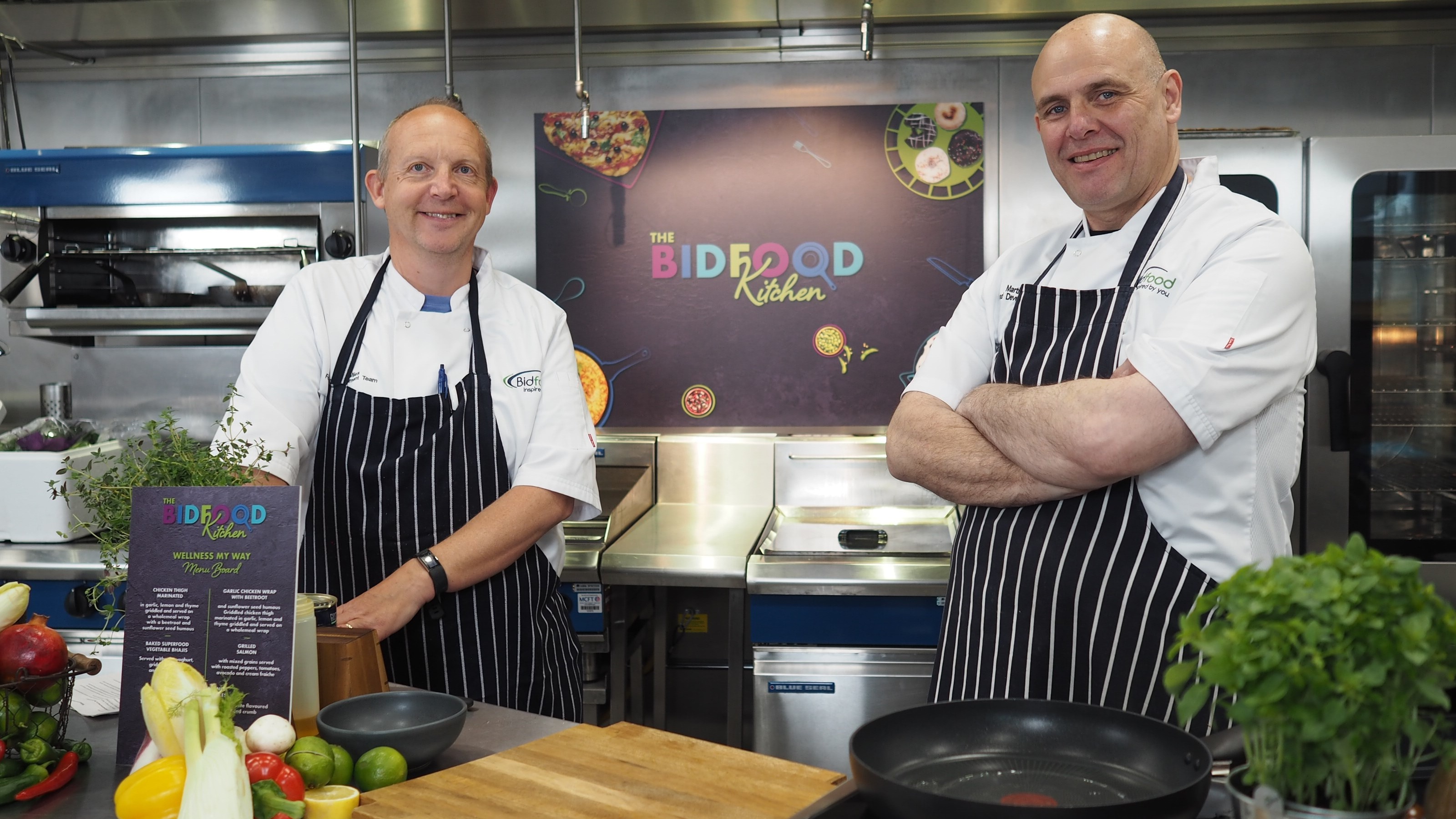
For those who don’t know, what is the Burnt Chef Project, and why is it so important?
I think it’s really important that as a group in the catering industry, we come together and recognise where the hard parts and the faults are within the industry, we don’t just take it as the norm, we address them. And having the Burnt Chef Project is such a good way to do this – it’s got resources, training, mentors, ambassadors, and it’s got a real professionalism which businesses can go to. It’s even international now!
If you’re a hospitality business thinking about whether you have a good working environment – look at things like whether you have a high turnover rate, if you’ve got unhappy staff, if you’ve got conflict in the kitchen, sickness – you’ve got to have a look at why and what’s causing that. Of course, you’ll always have those busier periods like Christmas which are hard, but most of the time the working conditions should be a lot better. There are some kitchens which aren’t looking at this, but I think those are the ones that are going to struggle going forwards to recruit!
Even if your kitchen is running smoothly, having support like this for your staff is essential for prevention too. Working in a kitchen is a hard job! If all is running well, it’s running well for a reason – you might, for example, have a really good head chef who understands and inspires everyone, creates a good culture and training opportunities, but if you take that person out then you’ve got to make sure this good working environment remains. It’s about creating a whole working culture which everyone is on board with and is a part of.
Making sure people get time off, they can have holidays, they have all the provisions they need, a rest area – it all makes the day better. Once you take these away from people, there is such a knock-on effect. Give your staff the ability to know what is right and wrong in their working environment, and the ability to call out bad practices. This means you can still have a busy kitchen, but everyone is happy!
What kind of support does the Burnt Chef Project offer to hospitality professionals?
All sorts! They do fundraising, they do meet-ups, educational visits to schools and colleges. They really try and get to the grass roots, because what they don’t want to happen is that the chefs that have just come out of college go into it and then leave straight away.
Because once they leave the industry, they won’t come back into it. So, a lot of the work they do is encouraging people to get into and love the industry, as well as the things we’ve already talked through so far.
Why do you think mental health support is particularly crucial in hospitality?
It’s a 24/7 business, as well as unsociable hours. You’ve got to let people have an area they can access help and support. You know, if you work shifts and unsociable hours, you’re putting your pressure onto other areas like your family.
Or, for example, if you’re a single person trying to meet somebody, you’re working whilst everyone else is out! It can be quite isolating working in hospitality, so it’s important to make sure support is readily available so people can relieve some of the stress and have a better work-life balance.
And if you are a business or employer, as well as the responsibility you have to look after the well-being of your staff, it is also important from a business perspective. Recruitment is expensive, it’s difficult to find staff from younger generations coming into the industry. Any chef now will accept difficult shift patterns and night shifts, but what they don’t accept is poor working conditions, lack of respect and no appreciation for their hard work. Even saying thank you can often be forgotten! The change is happening – whether or not you get on board is then up to you.
Do you think the industry’s attitude towards mental health is changing? If so, how?
Yes definitely, I think the longer hours are now more unacceptable, and new staff won’t be prepared to work those hours. They will expect nice rest rooms, meals, access to refreshments, time off etc which it never used to be, but now are as working conditions are becoming a lot better. Expectations of workers are changing, and the Burnt Chef Project are supporting them and businesses in this.
I would say nowadays the kitchens are a lot better, a lot safer, they’re not as hot – the working conditions are a lot better, but I do think there is still a mentality of work hard, play hard amongst chefs, and the Burnt Chef Project is also about educating people on this and helping people to have a better look at their lifestyle and how they can improve it.
Changing the old view of it being a badge of honour to do a 14 hour shift without eating, to prioritising your health and treating your mind and body well. That behaviour is now not the norm, and people are realising it’s wrong.
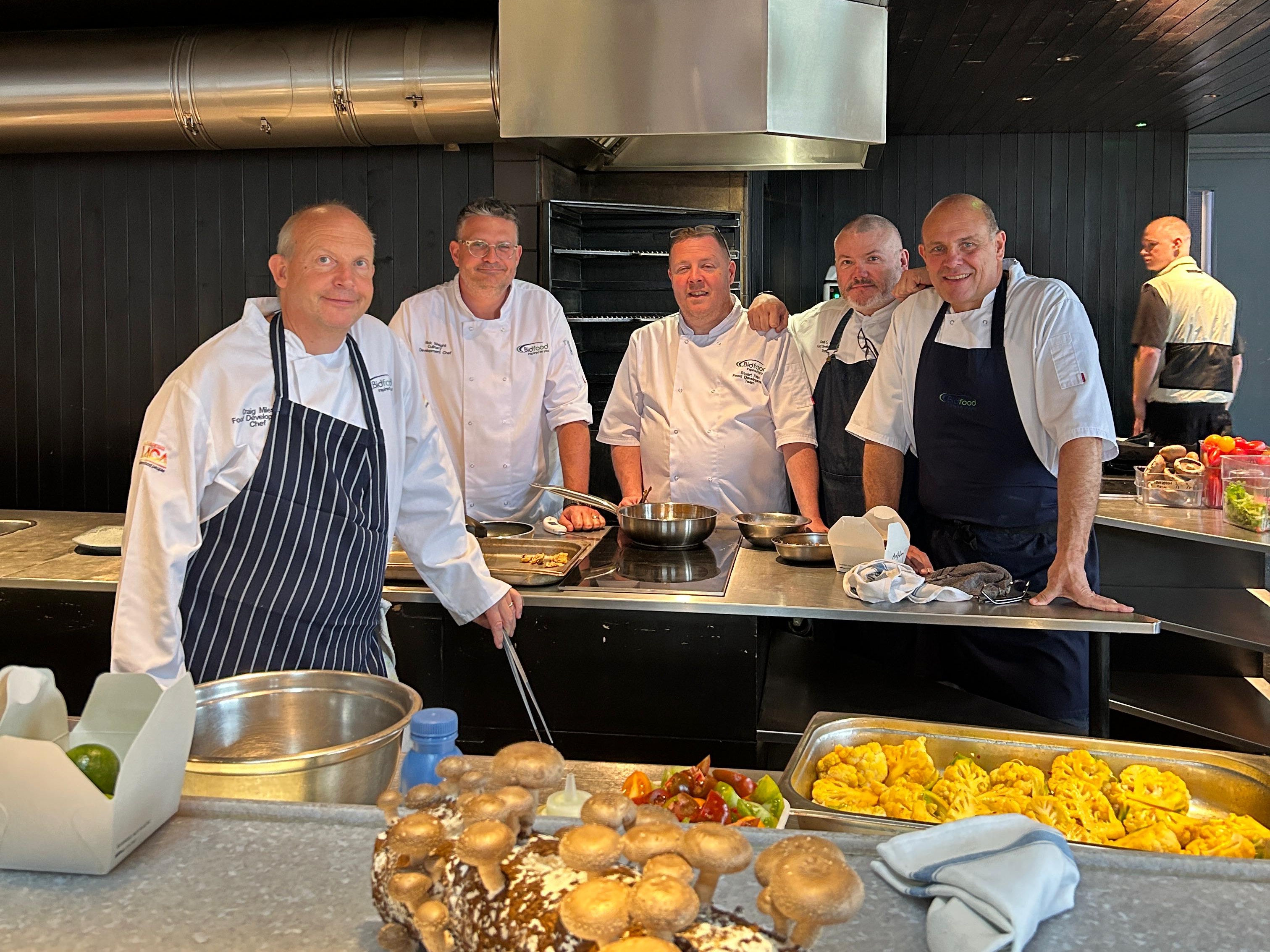
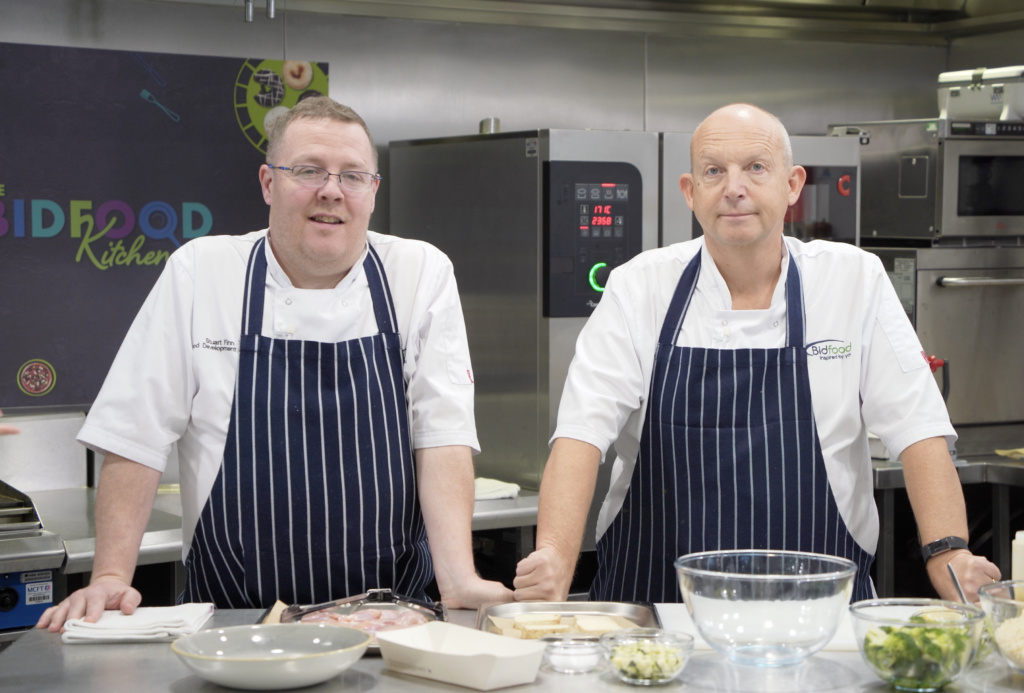
What can employers and colleagues do to create a healthier workplace culture?
As well as having a look at the Burnt Chef Project, making sure there is a culture where people can open up and talk, both about work and home life. Take the time to sit down and have a meal together, check in on people. You can tell if somebody is unhappy or off. It’s having time to spend to care and talk to each other, and it’s doing social things together.
Just sitting down as a group, getting everyone together. Also giving rewards can help create a good culture and show people they are appreciated. But I think it’s mainly having that open culture where you can talk to somebody about it because it might not be related to work – you can be at work, but if a family member is ill or you are going through a bereavement that can obviously affect you and you will need support at your work.
So, it’s really important that you give your staff the time to do this, and build those relationships where they feel comfortable enough to talk about their mental health with their colleagues.
What advice would you give to someone in hospitality who is struggling with their mental health?
Check out the Burnt Chef Project, find the helplines and numbers and reach out to them. Also look at where you’re working – is it the right place for you? Ask for help, if you feel like there isn’t someone you can speak to around you, the people from Burnt Chef Project are also there to chat and give advice and talk to you about it.
Try and get a mentor – someone you can chat to about what’s happening. It might be that you need to change where you’re working or even change a bit of how you are and reflect about your approach to things. But do the good things: eat well, sleep well, drinks lots of water.
How can individuals and businesses get involved with the Burnt Chef Project?
Individuals can reach out for free using their helpline which is on their website. There are lots of opportunities for businesses to get involved – like becoming sponsors, and if you want to be an ambassador you can go through training to make sure you are in a good position to be able to do this.
It’s also about getting that helpline number out there, have it on a poster in the changing rooms, just so people know there is somebody there for them if they need it.
[For anyone reading this blog who needs support, the Burnt Chef Project helpline number can be found here]
What’s one key message you’d like to share about mental health in hospitality?
You are not alone. It might sound cheesy, but you’re not alone. There is help, and there are people who can be there for you.
A huge thank you to Craig for sharing all of this with us, and for being a voice within our industry for championing mental health support with the Burnt Chef Project.
Read more about The Burnt Chef Project on their website, here.
Learn more about Bidfood here: About us | Bidfood
